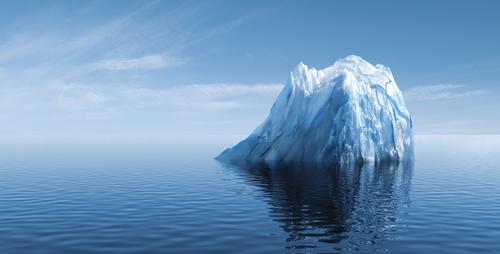Science Journalism in an Evolving Media Ecosystem

–Guest post by Josephine Chu, graduate student at American University.
In the last ten years, the rise of a variety of web-based and social media platforms has dramatically changed the role of the science journalist. No longer do people have to rely on traditional media to learn about a new issue, instead they can go online and visit a host of blogs to find the specific information that they want. This new media ecosystem, write Declan Fahy and Matthew Nisbet in a recent study, has greatly diminished the power science journalists previously held as “gate-keepers.”
However, that is not to say that science journalists no longer play an important role. In fact, the great majority of blog posts draw on and reference information originally found in legacy media, particularly newspapers and magazines. Blogs though have greatly changed the role that science journalists play in disseminating this information. Because of the Internet, the public can be highly engaged in the scientific debate to an extent that was not previously possible, though this engagement raises new considerations.
Conveners, Skeptics, and Critics
Thus, science journalists like the New York Times’ Andrew Revkin can now play a greater variety of roles, including acting as a convener of discussions among experts and online audiences and as a curator of relevant news and resources. Many science journalists – encouraged to wear many hats as their profession evolves – are also teaching at universities. Revkin, for example, has connected his classroom to his New York Times blog, convening video discussions with a variety of experts and voices.
Science journalists also now use online media such as Twitter to help spread the story and give greater coverage to an issue that may have been previously ignored by the traditional media. Legacy media has generally not been very critical of scientific research, but online science journalists can provide deeper insight into the implications of research and how scientists arrived at their conclusions. Rather than just simply accepting what scientists have proclaimed, writes Fahy at the Columbia Journalism Review, journalists use the space and tools afforded them online to probe deeper into issues related to bias, conflict of interest, hype, ethics, and uncertainty.
Science Mixed with Advocacy
Since science journalists no longer have as great a monopoly on the dissemination of scientific information, people have much greater choice in determining where to get their science news. However, as Dietram Scheufele and Nisbet write, this also means that people are more likely to choose to read from news sources that give them the information that they are likely to agree with or are interested in, with Facebook and Twitter enhancing this tendency Thus, while people may be getting more in-depth, specialized information, the range and diversity of information that people receive may also be greatly diminished. In the blogosphere especially, discussion of scientific research is frequently reinterpreted via a liberal or conservative lens, and applied to political goals.
Science on Cable News
Selectivity also plays a role at cable news. A study by Lauren Feldman and colleagues finds that Fox News and MSNBC/CNN offer viewers equally one-sided presentations on the issue of climate change, though with different slants. A majority of on air segments at Fox dismiss the need for action on climate change while a strong majority of segments at MSNBC/CNN strongly endorse reasons for action. Predictably, among Republicans, heavier viewers of Fox are more dismissive of climate change than their lighter viewing counterparts. Yet for those few Republicans who watch the other cable networks, they are more similar to Democrats in their views about the issue.
An implication of the Feldman study is that it may be possible to engage Republicans on the issue of climate change if the issue is recontextualized in a persuasive and compelling way. Thus, the next question becomes, what kinds of frames of reference engage Republicans and how can we reach them across different media spaces?
–Guest post by Josephine Chu, MA student in Global Environmental Politics at American University, and student in this semester’s course on Science, the Environment, and the Media. Find out more about the MA programs in Public Communication and Political Communication as well as the Doctoral program in Communication.
REFERENCES
Fahy, J. and Nisbet, M. C. (2011). The Science Journalist Online: Shifting Roles and Emerging Practices. Journalism: Theory, Practice, and Criticism.
Feldman, L et al. (2011). Climate on Cable: The Nature and Impact of Global Warming Coverage on Fox News, CNN, MSNBC. International Journal of Press/ Politics.
Scheufele, D. A. and Nisbet, M. C. (in press). Online News and and the Demise of Political Disagreement. Communication Yearbook.





